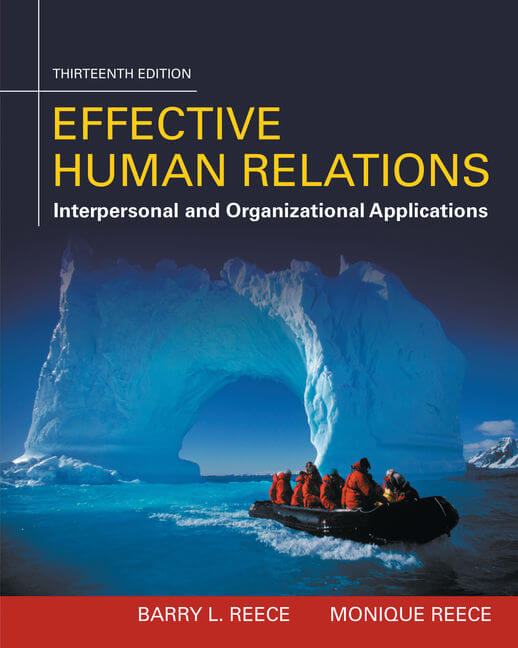
HUMAN RELATIONS: INTERPERSONAL AND ORGANIZATIONAL APPLICATIONS incorporates many examples of real human relations issues and practices. This edition offers expanded coverage of generational differences, and issues women and men face in the workplace. It focuses on emotional intelligence, the root causes of negative attitudes, the importance of personal branding and social media in the job market, emotional intelligence, happiness and positive psychology, and the elements organizations need to create a dynamic and thriving company culture.
Those who enter the workforce today encounter a work/life landscape that is more complex and unpredictable than at any other time in history. The mastery of interpersonal relationship skills gives us the self-confidence needed to achieve success in our highly competitive workforce.
BUILDING ON PREVIOUS STRENGTHS
Effective Human Relations: Interpersonal and Organizational Applications, thirteenth edition, is one of the most widely adopted human relations texts available today. It has been successful because the authors continue to build on strengths that have been enthusiastically praised by instructors and students. The latest workforce developments, global trends, and communication technologies that influence human relations have made this a highly practical text in a wide variety of courses in leading colleges and universities.
The “total person” approach to human relations continues to be a dominant theme of this new edition. We continue to believe that human behavior at work and in our private lives is influenced by many interdependent traits such as emotional intelligence, self-awareness, integrity, self-esteem, positive psychology, diversity & inclusion, and healthy spirituality, as well as the elements organizations need to create a dynamic and thriving company culture.
This approach focuses on those interpersonal relationship skills needed to be well-rounded and thoroughly prepared to handle a wide range of human relations problems and issues.
This edition, like all previous editions, provides the reader with an in-depth presentation of the seven major themes of effective human relations: Communication, Self-Awareness, Self-Acceptance, Motivation, Trust, Self-Disclosure, and Conflict Resolution. These broad themes serve as the foundation for contemporary human relations courses and training programs.
Self-assessment and self-development opportunities are strategically placed throughout the entire text to teach students to assume responsibility for improving skills and competencies. One of the few certainties in today’s rapidly changing workplace is the realization that we must assume greater responsibility for developing and upgrading our own skills and competencies.